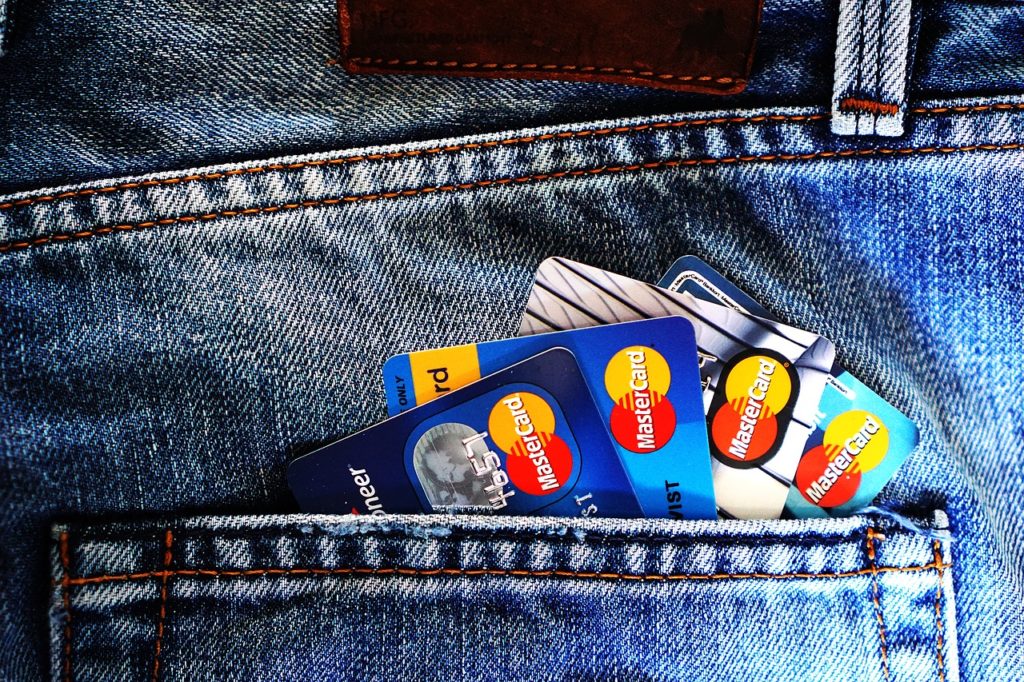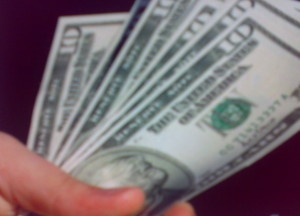
Over the last few decades, shopping behavior in the average consumer has changed substantially from one of “save now, buy later” to “buy now, pay later” with the advent of convenient purchasing shortcuts like in-store credit cards and online shopping.
Anyone with a consistent income can apply for (and will usually receive) a credit card these days – most companies even offer multiple incentives for consumers to purchase outside of their means, and deal with the payments (and high interest rates) later.
We’ve become a society based on instant gratification, with clever advertisements constantly convincing us of the latest and greatest thing we must have, right now!
Rates of impulse buying have increased significantly, with approximately 5-10% of the Western population experiencing financial difficulties and emotional distress as a result of compulsive shopping.
While most people engage in impulse buying from time to time, compulsive shopping becomes a problem when the individual:
- Uses shopping as an escape from stress or anxiety
- Has constant urges to shop and experiences distress when unable to shop
- Uses shopping as a replacement for another addiction such as drinking or gambling
- Shops in secrecy, or experiences shame and guilt after shopping, going to great lengths to hide the purchases from others.
Other Impulse Control Disorders
Compulsive buying falls under the subcategory of psychiatric disorders known as impulse control disorders not otherwise specified (ICDNOS); the broad category of formal impulse control disorders include problematic behaviors such as: pathological gambling, kleptomania (uncontrollable stealing), pyromania (persistent, deliberate fire starting for gratification, differentiated from arson), and trichotillomania (excessive, repetitive hair pulling resulting in significant hair loss). Currently, impulse control disorders are not well understood by psychiatrists nor the general public, resulting in negative stigma toward those who are struggling.
Consumer Misbehavior
Perhaps a modern-day problem of technological advances, credit card fraud has become a serious problem, especially now that opportunities to purchase items without a physical card in hand or need for a signature exist within the realm of online shopping.
 Fraud comes in many forms; it can take place online or in person; using stolen credit cards; falsifying personal information to receive credit cards; or creating and using counterfeit cards. Recognized within business research as ‘consumer misbehaviour’, the relationship between credit card fraud and compulsive buying is not well studied.
Fraud comes in many forms; it can take place online or in person; using stolen credit cards; falsifying personal information to receive credit cards; or creating and using counterfeit cards. Recognized within business research as ‘consumer misbehaviour’, the relationship between credit card fraud and compulsive buying is not well studied.
Reasons for consumer misbehavior include such things as calculating opportunism, absence of moral constraints, thrill seeking, psychological problems, or negative attitudes toward exchange institutions. Credit card fraud in the compulsive shopper and kleptomania would be examples of consumer misbehavior attributable to psychological problems.
An interesting reason for consumer misbehavior, identified in business research as “unfulfilled aspirations leading to fraud” may provide an explanation for why credit card fraud in the compulsive shopper may occur. Consumers are overwhelmed by advertisements and products in our materialistic society, with many unable to legitimately afford the extravagant lifestyles portrayed to us by the media.
Why we Purchase Impulsively
Items purchased on pure impulse tend to be those that we associate with our identity, especially when we feel a discrepancy between who we want to be and whom we think we are. Should the ideal self-fall so far outside of one’s financial means, the consumer may be tempted to engage in fraudulent purchasing.
It may seem like a quick and easy shortcut to obtain the items we think we need using a stolen credit card or someone else’s financial information. The consequences of fraud may not be realized initially- the victim of fraud may not notice additional charges on their card, or might not have realized their new credit card was stolen from the mail.
Unfortunately, fraud leads to problems such as increased interest rates on credit cards and higher costs on goods to make up for losses, or criminal charges against the individual committing the fraud.
Currently, there is limited research on treatment of compulsive buying and other impulse control disorders; pharmaceutical treatment with antidepressant medications may help to control impulsivity, or treat underlying disorders that may be contributing to compulsive buying.
If depression or anxiety are seemingly relieved by compulsive buying, treating the underlying depression or anxiety may lead to a reduction in compulsive buying behavior.
Treatment for Financial Fraud and Compulsive Buying
Current “treatment” for financial fraud is deterrence through education by making the consumer aware of the adverse outcomes associated with getting caught making fraudulent purchases (ie. criminal charges, fines, community service, etc.). Technological advances have created some reduction in credit card fraud, by flagging suspicious purchases or attaching pin numbers to cards.
If compulsive buying is a problem for you or someone you care about, it is important to seek treatment, especially if extreme measures like shoplifting or fraud are taking place. As shopping stimulates the reward center in the brain, compulsive buyers become addicted to the thrill of purchasing, much like the drug user or alcoholic.
for you or someone you care about, it is important to seek treatment, especially if extreme measures like shoplifting or fraud are taking place. As shopping stimulates the reward center in the brain, compulsive buyers become addicted to the thrill of purchasing, much like the drug user or alcoholic.
Over time, the “high” associated to purchasing may lessen, as the buyer develops a tolerance. In search of that high, the buyer may resort to illegal measures, as the risk of getting caught shoplifting or using stolen credit cards heightens the thrill.
While the intention is not criminal, the consequences of committing credit card fraud may be harsh. If caught, the compulsive buyer may experience punishment such as fines, banishment from stores, and possible criminal charges and jail time.
Mandatory psychiatric treatment may be ordered, in addition to community service. Seeking treatment for compulsive buying or other impulse control disorders early on is key in preventing extreme outcomes, and will allow the individual to avoid substantial legal and financial difficulties that are likely to occur when compulsive buying is combined with fraud.
About the author:
 Stephanie Sands is currently pursuing a Bachelor of Science degree in Kinesiology, majoring in Mind Sciences. She completed an Honors Degree in Psychology in 2012, focusing on eating disorders and personality.
Stephanie Sands is currently pursuing a Bachelor of Science degree in Kinesiology, majoring in Mind Sciences. She completed an Honors Degree in Psychology in 2012, focusing on eating disorders and personality.
She intends to combine her educational background into a holistic wellness practice, to strengthen mental health through a combination of counselling, physical activity, and nutrition coaching.
The opinions and views of our guest contributors are shared to provide a broad perspective of addictions. These are not necessarily the views of Addiction Hope, but an effort to offer discussion of various issues by different concerned individuals.
We at Addiction Hope understand that addictions result from a combination of environmental and genetic factors. If you or a loved one are suffering from an addiction, please know that there is hope for you, and seek immediate professional help.
Reviewed By: Jacquelyn Ekern, MS, LPC on January 31, 2016
Published on AddictionHope.com
References:
Bhatla, T. P., Prabhu, V. & Dua, A. (2003). Understanding credit card frauds. Tata Consulting Services.
Dittmar, H., Beattie, J., & Friese, S. (1996). Objects, decision considerations and self-image in men’s and women’s impulse purchases. Acta Psychologica, 93, 187-206.
Fullerton, R. A., & Punj, G. (2004). Repercussions of promoting an ideology of consumption: Consumer misbehaviour. Journal of Business Research, 57: 1239-1249.
Fullerton, R. A. & Punj, G. (1997). Can consumer misbehavior be controlled? A critical analysis of two major control techniques. NA – Advances in Consumer Research Volume 24, eds. M. Brucks and D. J. MacInnis, Provo, UT : Association for Consumer Research, 340-344.
Grant, J. E., Odlaug, B. L., & Kim, S. W. (2007). Impulse control disorders: Clinical characteristics and pharmaceutical management. Psychiatric Times, 24(10): 64-69.
Hartston, H. (2012). The case for compulsive shopping as an addiction. Journal of Psychoactive Drugs, 44: 1, 64-67.

